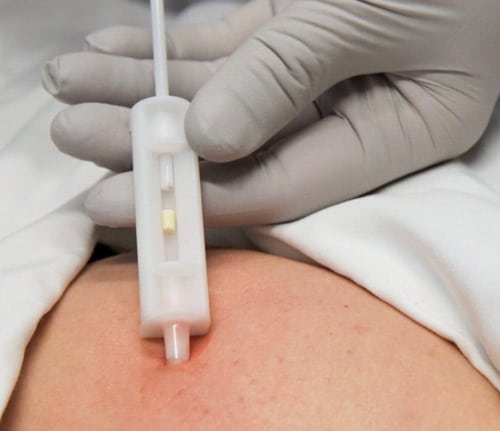Personalized Medicine
Optimize your internal environmental and discover the power of true health!
Hormone replacement therapy (HRT)

PELLETS
We offer Pellet Bio-Identical HRT. Pellets are a unique form of hormone delivery that are inserted into the skin. The pellets work by slowly releasing hormones over time to maintain a consistent level in your bloodstream. Pellets come in the form of estrogen and testosterone. Pellets are a convenient form of HRT and are highly effective for signs and symptoms of menopause and hormonal decline in both females and males.

CREAMS
Topical hormone preparations are specifically designed to be applied to the skin and
absorbed into the bloodstream. Creams come in the form of estrogen, progesterone, and
testosterone. Creams are effective and allow for dosing flexibility. We only offer bioidentical hormone
preparations at Preveda.

PATCHES
Adhesive hormone preparations are typically designed to be worn on the skin for a
length of time, allowing hormones to be absorbed directly into the bloodstream. Patches can come
in the form of estrogen, progesterone, and testosterone.
Weight Loss therapy
At Preveda, of our weight loss medications are ordered through an FDA approved pharmacy. We offer weight loss therapy in a monthly membership, which includes check ins with our physician assistant, and a comprehensive bloodwork panel prior to beginning therapy.

SEMAGLUTIDE
A GLP-1 receptor agonist originally developed for the treatment of type 2 diabetes
and later for weight loss. The brand name of this medication is Ozempic, we offer it in its generic
from known as Semaglutide. By acting on the satiety centers of the brain, Semaglutide effectively
curbs appetite and helps regulate portion control, in addition to lowering blood sugar .

TIRZEPATIDE
A dual GLP-1 receptor agonist and GIP agonist that was FDA approved for type 2
diabetes and weight loss. The brand name of this medication is Mounjaro, we offer it in its generic
form known as Tirzepatide. Semaglutide and tirzepatide are very effective, in that they both slow
digestion, reduce appetite, and lower blood sugar. Tirzepatide has an added element that mimics a
hormone called GIP, which improves the body’s ability to break down sugar and fat. Studies show
that tirzepatide is slightly more effective than Semaglutide for weight loss.

LIFE STYLE OPTIMIZATION
It refers to the comprehensive approach of making sustainable lifestyle changes to achieve and maintain a healthy weight. It goes beyond traditional dieting and focuses on adopting healthy habits that encompass nutrition, physical activity, stress management, sleep patterns, and overall well-being.
Precision Medicine
Optimize your internal environmental and discover the power of true health!

GUT HEALTH ANALYSIS
A stool based test that provides a comprehensive gut health report and is performed
in the convenience of your home. This test detects bacterial and fungal over/undergrowth, parasites,
gut diversity, inflammation, digestive enzymes, etc. It allows for the identification of specific gut
imbalances and determines what microbes are tied to specific diseases so that proper protocols can
be implemented

MICRO NUTRIENT ANALYSIS
An in-house blood draw that helps identify nutritional deficiencies that can cause or
increase the risk of chronic disease. This test detects intracellular levels of essential vitamins and
minerals so that specific neutraceuticals and dietary modifications can be made. This test is
particularly helpful for patients trying to optimize their physical and mental performance.

ENVIROMENTAL TOXICANT ANALYSIS
This urine based test analyzes environments toxicants that we are commonly exposed to through our food, air, and day to day exposures. These toxicants can accumulate over time and wreak havoc on our health. We implement specific protocols to make sure the body is able to effectively and safely detox from these harmful substances. Analytes in this panel include heavy metals, pesticides, molds/fungi, volatile organic compounds (VOCs), BPA plastics and more.

PEPTIDE THERAPY
Peptides create amino acids, which create proteins, which act as messengers to our DNA to activate specific functions within the body. They are newer forms of drugs than can enhance bodily functions. Peptides can be administered in various forms from pills to injectables and have a high safety profile. At preveda, we commonly prescribe peptides to improve athletic performance, exercise recovery, lean muscle mass, collagen production, injury recovery, digestive function, and more.

VITAMIN INJECTIONS
Vitamins and minerals are essential for the proper functioning of our bodily systems.
Improve vitamin levels, enhance weight loss, and provide your body with a healthy dose of
antioxidants via our injectable preparations. We offer vitamin B12, LIPO-B (methionine, inositol,
choline, B12), and glutathione injections.

CUSTOMIZED SUPPLEMENTS
Vitamins, minerals, and other neutraceuticals enhance the effectiveness of our
therapies and allow the body to rejuvenate more efficiently. We create customized supplement
protocols based off of the lab analytes we test. As the health of our soils continue to decline, nutrient
deficients are becoming more prevalent in our modern world.

Bloodwork analysis
If you don’t measure it, you can’t monitor it. We offer in-house customized bloodwork panels based on symptomology and provide in-depth reviews for our patients that are easy to understand. We run blood markers that aren’t typically analyzed in a conventional healthcare settings and aren’t always covered by insurance. Our comprehensive panels analyze a variety of markers such as sex hormones, thyroid function, minerals, nutrients, inflammatory markers, metabolic health, and many more.
WHAT IS PELLETS Replacement Therapy?
Pellets in hormone replacement therapy (HRT) refer to small, customized hormone pellets that are inserted under the skin to deliver a consistent and steady dose of hormones into the body. These pellets are typically made from bioidentical hormones, which have a molecular structure identical to the hormones naturally produced by the human body.
The process of pellet therapy involves a healthcare provider making a small incision, usually in the hip or buttock area, and inserting the hormone pellets beneath the skin. The pellets are typically smaller than a grain of rice and are made up of either estradiol (a form of estrogen) or testosterone. Once inserted, the pellets slowly release hormones into the bloodstream, providing a continuous and controlled hormone delivery.
The duration of pellet therapy can vary depending on the individual's hormone levels and specific needs. In general, hormone pellets can last anywhere from three to six months before they need to be replaced. The dosage and frequency of pellet insertion are determined based on the individual's hormone levels, symptoms, and desired therapeutic effects.
Pellet therapy is commonly used in hormone replacement therapy to address symptoms associated with hormonal imbalances, such as menopause or andropause. It can help alleviate symptoms like hot flashes, night sweats, mood swings, low libido, fatigue, and cognitive issues. Additionally, hormone pellets offer the advantage of convenience as they eliminate the need for daily hormone administration, providing a consistent hormone level throughout the treatment duration.
WHAT IS CREAM Therapy?
In Hormone Replacement Therapy (HRT), creams are one of the forms of delivering hormones to the body. Hormone creams, also known as topical hormone preparations, are specifically designed to be applied to the skin and absorbed into the bloodstream. They contain hormones, such as estrogen, progesterone, or testosterone, in a cream base that allows for easy application and absorption.
HRT creams offer several advantages over other forms of hormone administration, such as pills or patches. Firstly, they provide a convenient and non-invasive method of delivering hormones, as they can be applied topically to specific areas of the body. This localized application allows for targeted absorption and potentially reduces the risk of systemic side effects.
Moreover, creams can be compounded, which means they can be customized to suit individual hormone needs. This flexibility is particularly beneficial for individuals who require specific hormone combinations or dosages that may not be available in commercial products.
However, it is essential to note that hormone creams should only be used under the supervision of a qualified healthcare provider. They will assess your hormone levels, symptoms, and overall health to determine the most appropriate form of HRT and ensure safe and effective treatment. Regular monitoring and adjustments may be necessary to optimize hormone levels and achieve desired therapeutic outcomes.
WHAT IS PATCHES Replacement Therapy?
In Hormone Replacement Therapy (HRT), patches refer to a form of medication delivery system that is used to administer hormones to the body. These patches are typically designed to be worn on the skin, allowing the hormones to be absorbed directly into the bloodstream.
Hormone replacement patches are commonly used to deliver estrogen and progesterone in women undergoing menopause or experiencing hormonal imbalances. They are also utilized in transgender hormone therapy to provide the necessary levels of hormones for transitioning individuals.
The patches are typically thin and adhesive, allowing them to adhere to the skin comfortably. They are applied to clean and dry areas of the body, such as the lower abdomen, buttocks, hips, or thighs. The hormones are gradually released through the patch and absorbed into the bloodstream over a specified period, usually 24 hours or more, depending on the specific brand and dosage.
Patches offer several advantages in hormone replacement therapy. They provide a continuous and consistent release of hormones, ensuring stable blood levels throughout the day. They also bypass the liver, minimizing the risk of certain side effects associated with oral hormone medications. Additionally, patches can be a convenient option as they typically require application only once or twice a week, depending on the specific patch.
WHAT IS BLOOD WORK ANALYSIS?
Comprehensive bloodwork analysis is a valuable tool in assessing and maintaining overall wellness. By analyzing various markers in the blood, healthcare professionals can gain insight into the functioning of different organs and systems within the body. This analysis often includes measurements of red and white blood cells, cholesterol levels, liver and kidney function, hormone levels, and nutrient deficiencies.
The results of a comprehensive bloodwork analysis can provide valuable information about an individual's overall health status, identify potential underlying health conditions, and help monitor progress during treatment or lifestyle changes. It serves as a baseline assessment that allows healthcare providers to track improvements or detect any deviations from normal ranges.
In addition, bloodwork analysis can assist in creating customized supplement protocols. By identifying nutrient deficiencies or imbalances, healthcare professionals can recommend specific supplements or dietary modifications to address these issues. This personalized approach ensures that individuals receive the necessary nutrients to support their unique needs and optimize their overall health.
WHAT IS SEMAGLUTIDE?
Semaglutide weight loss therapy is a medical treatment that utilizes a medication called semaglutide to aid in weight loss. Semaglutide is a glucagon-like peptide-1 (GLP-1) receptor agonist originally developed for the treatment of type 2 diabetes. However, during clinical trials, it was discovered that semaglutide also had a significant impact on weight loss.
When used for weight loss, semaglutide is administered via injection once a week. It works by mimicking the action of GLP-1, a hormone that regulates appetite, food intake, and glucose metabolism. By activating GLP-1 receptors in the brain, semaglutide helps reduce hunger, increase feelings of fullness, and promote satiety. This leads to a decrease in calorie consumption, resulting in weight loss.
Semaglutide weight loss therapy has shown promising results in clinical trials, with participants experiencing significant weight reduction. It is typically prescribed for individuals with a body mass index (BMI) of 30 or higher or those with a BMI of 27 or higher with at least one weight-related medical condition, such as high blood pressure or type 2 diabetes.
WHAT IS TIRZEPATIDE?
Tirzepatide is an investigational therapy that has shown promise in the field of weight loss. It is a once-weekly injectable medication being developed by pharmaceutical company Eli Lilly. Tirzepatide belongs to a class of drugs called glucagon-like peptide-1 receptor agonists (GLP-1RAs) and is designed to regulate blood sugar levels and appetite control.
The clinical trials for tirzepatide have demonstrated its potential as a treatment for obesity and associated metabolic disorders. It works by targeting multiple pathways involved in weight regulation, including the brain, gut, and liver. By acting on these pathways, tirzepatide may help individuals achieve significant weight loss.
The effectiveness of tirzepatide in promoting weight loss has been observed in clinical trials where it has shown superior results compared to other weight loss medications currently available. In addition to weight loss, tirzepatide has also shown benefits in improving glycemic control, reducing blood pressure, and lowering cholesterol levels in patients with type 2 diabetes.
WHAT IS LIFE STYLE OPTIMIZATION?
Lifestyle optimization in weight loss therapy refers to the comprehensive approach of making sustainable lifestyle changes to achieve and maintain a healthy weight. It goes beyond traditional dieting and focuses on adopting healthy habits that encompass nutrition, physical activity, stress management, sleep patterns, and overall well-being. The goal is to create a balanced and personalized plan that promotes long-term weight management and improves overall quality of life.
In lifestyle optimization for weight loss therapy, the emphasis is on creating a healthy and realistic eating plan that suits individual needs, preferences, and cultural considerations. This may involve incorporating whole, nutrient-dense foods, portion control, mindful eating practices, and developing a positive relationship with food. It also includes regular physical activity tailored to an individual's abilities and preferences, aiming to increase energy expenditure, improve fitness levels, and enhance overall health.
Furthermore, lifestyle optimization addresses the role of stress management and emotional well-being in weight loss. Strategies such as relaxation techniques, mindfulness practices, and stress-reduction activities are incorporated to help individuals develop healthier coping mechanisms and reduce emotional eating.
Another crucial aspect of lifestyle optimization is sleep hygiene. Prioritizing adequate and quality sleep is important, as it influences hunger and satiety hormones, energy levels, and overall health. Sleep optimization strategies, such as establishing consistent sleep routines and creating a conducive sleep environment, are integrated into the weight loss therapy to support overall well-being and weight management.
Overall, lifestyle optimization in weight loss therapy promotes a holistic and sustainable approach to achieving weight loss goals. It recognizes that successful weight management is not solely about calorie restriction but involves creating healthy habits and making positive lifestyle changes that can be maintained in the long run. By addressing various aspects of an individual's lifestyle, it aims to improve overall health and support a healthier relationship with food and body.
WHAT IS GUT HEALTH ANALYSIS ?
Gut Health Analysis is a crucial component of Functional Medicine treatment that focuses on assessing and improving the health of the gastrointestinal (GI) system. Functional Medicine takes a holistic approach to healthcare, aiming to address the root causes of illness and optimize overall well-being.
In Gut Health Analysis, various diagnostic tools and tests are utilized to evaluate the function and balance of the gut microbiome, which consists of trillions of microorganisms residing in the digestive tract. These tests may include stool analysis, blood tests, and breath tests, among others. By analyzing the composition of the gut microbiota and assessing factors such as inflammation, digestive enzymes, nutrient absorption, and intestinal permeability, practitioners can gain valuable insights into the individual's gut health status.
The information obtained from Gut Health Analysis helps identify any imbalances or dysfunctions within the gut, such as bacterial overgrowth, candida overgrowth, or impaired digestion. This knowledge allows healthcare providers to develop personalized treatment plans tailored to address specific gut-related issues. Strategies employed in Functional Medicine treatment may include dietary modifications, targeted supplementation, lifestyle changes, and stress management techniques, all aimed at restoring and maintaining a healthy gut environment.
Improving gut health through Functional Medicine approaches is believed to have a profound impact on overall health and well-being. Since the gut plays a vital role in digestion, nutrient absorption, immune function, and even mental health, optimizing its function can lead to improvements in various areas, including digestion, energy levels, mood, immune system resilience, and more. Gut Health Analysis, therefore, serves as a valuable tool in the pursuit of comprehensive and individualized care in Functional Medicine.
WHAT IS MICRO NUTRIENT ANALYSIS ?
Micro nutrient analysis in functional medicine treatment refers to the comprehensive evaluation of an individual's nutritional status at the cellular level. It involves assessing the levels of essential vitamins, minerals, amino acids, fatty acids, and other micronutrients within the body. This analysis helps healthcare practitioners gain insight into any nutrient deficiencies or imbalances that may be contributing to health issues or affecting overall well-being.
In functional medicine, which focuses on addressing the root causes of disease rather than just managing symptoms, micro nutrient analysis plays a vital role. By identifying specific nutrient deficiencies, practitioners can develop personalized treatment plans that aim to optimize the body's nutrient levels. This may involve recommending dietary modifications, lifestyle changes, and targeted supplementation to restore balance and support optimal health.
Micro nutrient analysis often includes a combination of laboratory testing, medical history assessment, and physical examination to gather comprehensive data about an individual's nutritional status. The results of the analysis can help identify potential nutrient deficiencies linked to various health conditions, such as fatigue, digestive issues, hormonal imbalances, immune dysfunction, and cognitive problems.
By addressing these deficiencies and restoring proper nutrient levels, functional medicine practitioners aim to support the body's natural healing processes and promote optimal health and well-being. This approach acknowledges the crucial role that proper nutrition plays in overall health and emphasizes personalized, evidence-based interventions to achieve optimal nutritional balance for each individual.
WHAT IS ENVIROMENTAL TOXICANT ANALYSIS ?
Environmental Toxicant Analysis in Functional Medicine treatment refers to the assessment and analysis of toxic substances present in the environment and their potential impact on an individual's health. It involves identifying and evaluating various environmental toxins, such as heavy metals, pesticides, volatile organic compounds (VOCs), and other harmful chemicals that can accumulate in the body over time.
In Functional Medicine, practitioners recognize that exposure to environmental toxins can contribute to chronic health issues and imbalances within the body. These toxins can disrupt normal physiological processes, compromise organ function, and contribute to the development or worsening of conditions such as autoimmune disorders, hormonal imbalances, neurological disorders, and metabolic dysfunction.
The process of environmental toxicant analysis in Functional Medicine typically involves comprehensive testing methods to identify the presence and levels of toxic substances in the body. This can include blood, urine, or saliva tests that detect specific toxins and provide insights into the individual's toxic burden. Based on the results, healthcare providers can develop personalized treatment plans to address the detoxification and elimination of these toxins from the body.
Functional Medicine treatments for environmental toxicant exposure may involve a combination of targeted nutritional interventions, lifestyle modifications, and specific detoxification protocols to support the body's natural detoxification pathways. The goal is to reduce the toxic load, restore organ function, and promote overall health and well-being.
WHAT IS PEPTIDE THERAPY?
Peptide therapy is a branch of functional medicine that utilizes short chains of amino acids called peptides to promote health and wellness. These peptides are naturally occurring substances in the body and play crucial roles in various physiological processes. In peptide therapy, specific peptides are used to target and influence specific functions and pathways within the body.
Functional medicine practitioners may prescribe peptide therapy to address a wide range of health concerns, including hormonal imbalances, inflammation, immune system dysfunctions, tissue repair, and anti-aging effects. Peptides can mimic or enhance the effects of certain natural substances in the body, such as growth factors or hormones, to restore balance and optimize overall well-being.
Peptide therapy is typically administered through subcutaneous injections, intramuscular injections, or oral formulations. The specific peptides used and the treatment protocols are personalized based on the individual's unique needs and health goals.
It's important to note that peptide therapy is an emerging field, and research is ongoing to explore its full potential and efficacy.
WHAT ARE VITAMIN INJECTIONS ?
Vitamin injections in functional medicine treatment involve the administration of vitamins and other essential nutrients directly into the bloodstream through injections. This method bypasses the digestive system, allowing for better absorption and utilization of the nutrients by the body. Functional medicine practitioners believe that vitamin injections can support optimal health and address specific deficiencies or imbalances in the body.
These injections typically contain a combination of vitamins such as vitamin B12, vitamin C, and vitamin D, as well as minerals and other nutrients. The specific combination and dosage depend on the individual's needs and health goals. Vitamin injections are often tailored to address conditions such as fatigue, immune system dysfunction, nutrient deficiencies, chronic illnesses, and even as a part of anti-aging protocols.
Functional medicine practitioners believe that vitamin injections can provide numerous benefits, including increased energy levels, enhanced immune function, improved mental clarity, and overall wellness. By delivering nutrients directly into the bloodstream, these injections are thought to provide a more potent and immediate effect compared to oral supplementation.
WHAT ARE CUSTOMIZED SUPPLEMENTS ?
Customized supplements in functional medicine treatment refer to personalized nutritional supplements tailored to an individual's specific health needs and goals. Functional medicine is an approach that focuses on addressing the root causes of health issues and aims to optimize overall wellness and vitality. Customized supplements are an integral part of this approach as they are designed to support and enhance the body's natural functions and promote healing.
In functional medicine, practitioners conduct a comprehensive assessment of an individual's health history, lifestyle factors, genetic predispositions, and laboratory tests to gain a deep understanding of their unique biochemistry and nutritional requirements. Based on this analysis, personalized supplement protocols are developed to address any nutritional deficiencies, support organ systems, and optimize overall health.
Customized supplements may include a combination of vitamins, minerals, antioxidants, amino acids, herbs, and other natural compounds. These supplements are carefully selected to address specific imbalances or deficiencies identified during the evaluation process. They are formulated in precise dosages and combinations to support the body's natural healing processes, improve nutrient absorption, and promote overall well-being.
By tailoring supplements to an individual's specific needs, functional medicine practitioners aim to provide targeted support to address the underlying factors contributing to health issues. This personalized approach recognizes that each person has unique nutritional requirements and ensures that the supplements provided are specifically suited to their individual biochemistry, helping to restore balance and optimize health outcomes.
